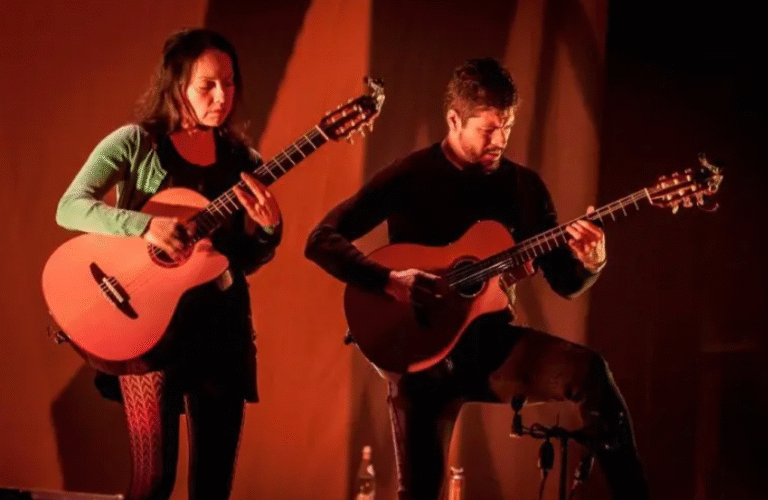Music is one of the most powerful and universal forms of expression. It goes beyond mere entertainment, serving as a crucial vessel for cultural identity and a driving force behind social movements throughout history and across the globe. Whether it’s traditional folk tunes passed down through generations or revolutionary anthems sung in the streets, music plays a vital role in shaping who we are as individuals and societies. In this article, we’ll explore the multifaceted role music plays in reinforcing cultural identity and inspiring social change. From the preservation of heritage to the rallying cries of protest, music embodies the heartbeat of communities and movements alike.
Music and Cultural Identity: A Deep Connection
Cultural identity is the sense of belonging to a group defined by shared traditions, language, customs, and history. Music naturally fits into this framework as a form of cultural expression that communicates values, stories, and emotions unique to a people.
See also: How Learning to Play an Instrument Benefits Your Mental Health
Reflecting Cultural Heritage Through Music
Traditional music acts as an archive of a community’s past. Instruments, melodies, and rhythms reflect historical experiences and social structures. For example, the didgeridoo in Aboriginal Australian culture or the sitar in Indian music is more than sound; they are cultural symbols. Songs often recount tales of ancestors, landscapes, and spiritual beliefs, helping maintain a collective memory.
Storytelling and Oral Tradition
Many societies use music as a storytelling tool. Folk ballads and chants carry histories and morals, passing knowledge from elders to youth in an engaging way. This oral tradition strengthens cultural continuity, especially in communities with limited written records.
Language Preservation Through Lyrics
Lyrics in native languages are a powerful method to preserve endangered dialects and linguistic identity. Music serves as a living record of language, keeping it vibrant and accessible even as globalization pressures minority languages toward extinction.
Psychological Influence on Identity Formation
Music influences how individuals see themselves and their place within a culture. Listening to culturally relevant music fosters pride and emotional connection to one’s roots, reinforcing identity at a personal and group level.
The Dynamic Between Traditional and Contemporary Music
While traditional music preserves the past, contemporary music genres often reflect current societal changes and new identity expressions. Genres like hip-hop, reggae, or K-pop illustrate how cultural identity can evolve while still honoring heritage.
Fusion and Globalization
Globalization enables cultural exchange, resulting in hybrid music styles. These fusions can both challenge and enrich traditional identities by blending diverse influences, creating new, shared cultural experiences.
Music in Rituals and Social Cohesion
Music often accompanies rituals, ceremonies, and festivals that cement community bonds. Whether a wedding, religious ceremony, or seasonal celebration, music marks significant moments that define collective identity.
Music as a Catalyst in Social Movements
Beyond cultural identity, music wields tremendous power in social and political activism. It mobilizes people, spreads messages, and sustains morale in the face of adversity.
Protest Songs: Voices of Resistance
Protest songs have long been integral to social movements. These songs encapsulate grievances and aspirations, often becoming rallying cries that unify participants. For instance, “We Shall Overcome” was pivotal during the U.S. Civil Rights Movement, instilling hope and solidarity.
Case Studies: Music and Social Justice
- Civil Rights Movement: Artists like Nina Simone and Bob Dylan used music to highlight racial injustice and demand change.
- Anti-Apartheid Movement: South African musicians such as Miriam Makeba and Hugh Masekela brought international attention to apartheid’s brutality.
- Hip-Hop and Urban Activism: Hip-hop emerged as a powerful voice for marginalized urban youth, addressing systemic racism, police violence, and poverty.
- Feminist and LGBTQ+ Movements: Empowering songs challenge societal norms and foster pride and awareness in these communities.
Digital Age and Global Activism
The rise of the internet and social media has amplified music’s reach in activism. Viral protest songs and online music campaigns enable global solidarity and raise awareness faster than ever before.
Challenges and Risks for Activist Musicians
Musicians advocating for social change often face censorship, harassment, or worse. Their art risks being silenced by oppressive regimes, highlighting their courage and the stakes involved in activism through music.
Economic and Technological Factors
The economics of music also matter—funding from concerts, sales, and streaming can sustain movements financially. Moreover, advances in technology democratize music production and distribution, empowering grassroots artists to influence change.
The Future of Music in Identity and Activism
Emerging technologies like AI, virtual reality, and immersive digital experiences will further transform how music connects culture and activism, potentially creating even more powerful tools for identity expression and social justice.
Conclusion
Music is an irreplaceable thread weaving through the fabric of cultural identity and social change. It preserves history, shapes self-understanding, and inspires collective action. In a world increasingly connected yet culturally complex, music remains a universal language of resistance, hope, and belonging.
Frequently Asked Questions (FAQs)
Q1: How does music help preserve endangered cultures?
Music preserves languages, stories, and traditions, ensuring they survive even in the face of external pressures.
Q2: Can music really influence political change?
Yes. Music rallies people, brings visibility to causes, and emotionally engages listeners, often influencing public opinion and policy.
Q3: What role does modern music play in activism?
Modern music spreads messages globally, particularly through social media, and gives voice to marginalized communities.
Q4: How do traditional and modern music coexist in cultural identity?
Traditional music preserves roots, while modern genres reflect evolving identities, creating a dynamic cultural dialogue.
Q5: Are there risks for musicians involved in social movements?
Yes. Many face censorship, threats, or exile for speaking out, underscoring the power and danger of musical activism.
